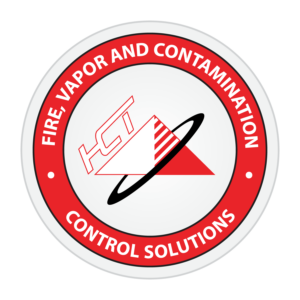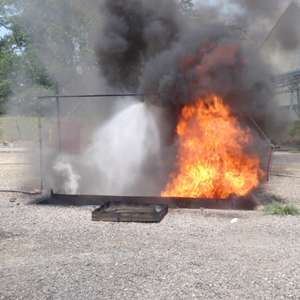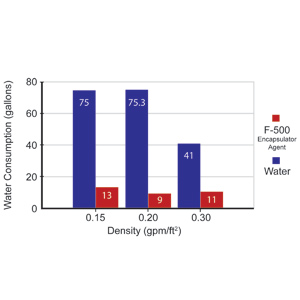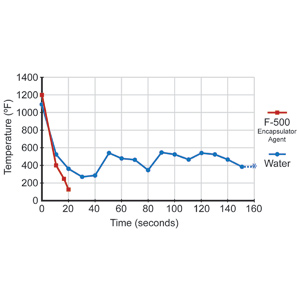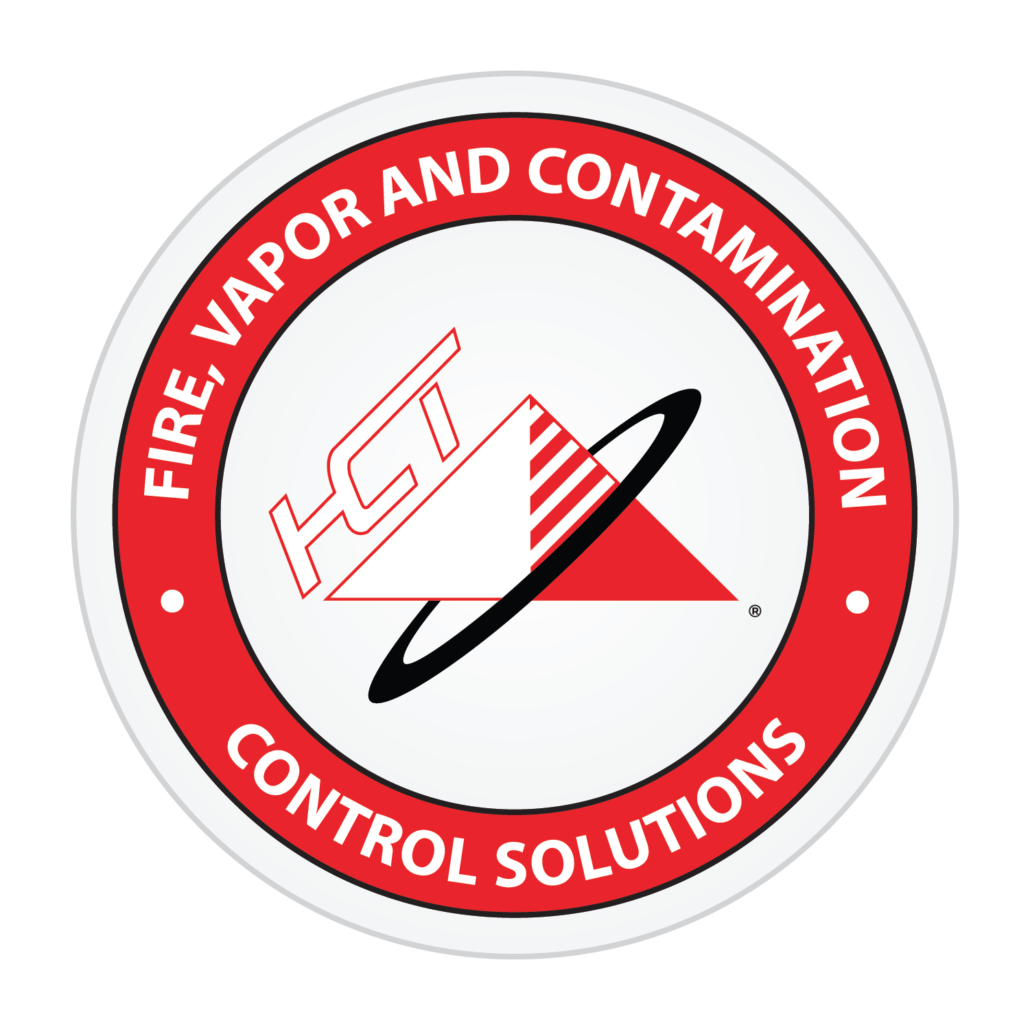Concentrate Control Supply System – Water vs. F-500 EA
Concentrate Control Supply (CCS) systems are available to proportion F-500 EA, Pinnacle foams and Dust Wash. For most firefighting systems, HCT recommends F-500 Encapsulator Agent. F-500 EA extinguishes a fire by cooling the fuel and surrounding structures, encapsulating the fuel and interrupting the free radical chain reaction. Removing any one of these elements could extinguish a fire, but F-500 EA eliminates all three. Because of these unique capabilities, F-500 EA is excellent fighting three-dimensional fires, Class A, Class B polar and nonpolar, Class D and even some specific Class C fires. Most of the fire suppression systems HCT protects are three-dimensional, such as warehouses, turbines, transformers or truck loading racks. In addition, many of these applications involve nonpolar Class B fuels, such as oil, diesel fuel or gasoline, and polar Class B fuels, such as ethanol and ethanol-blended fuels. F-500 EA also reduces the surface tension of water making the water droplets better able to spread out over a larger surface area and better penetrate Class A fuels. Examples are coal handling, recycled rubber crumb and other combustibles.
To better understand the capabilities of an F-500 EA enhanced fire suppression system vs. a water system, we refer to independent testing conducted on behalf of a large power company. The purpose of the testing was to prove to FM Global that their new recommendation of .40 gpm/ft2 application coverage for turbine protection was unnecessary if F-500 EA was supplemented into their existing .25 gpm/ft2 suppression system. Upgrading the system would have meant considerable capital investment.
The testing involved plain water and water with 3% F-500 EA at four discharge densities and two burn scenarios using diesel fuel. This chart, from one of the tests shows the amazing cooling capabilities of F-500 EA. Notice the temperature rapidly drops from 1200°F to 115°F in less than 20 seconds, whereas the water lowered the temperature to about 280°F, but it then climbed and continued to average 400-500°F until minutes later when they stopped the test.
The bar chart shows the amount of water used to extinguish the fire at three application densities. Just adding 3% F-500 EA to the water makes the solution so efficient at fighting the fire that 83% less water was used.
After the testing was completed, they concluded that not only was there no need to redesign their existing fire suppression system, but they could exceed the performance of a .40 gpm/ft2 system by simply adding F-500 EA to their existing system.
